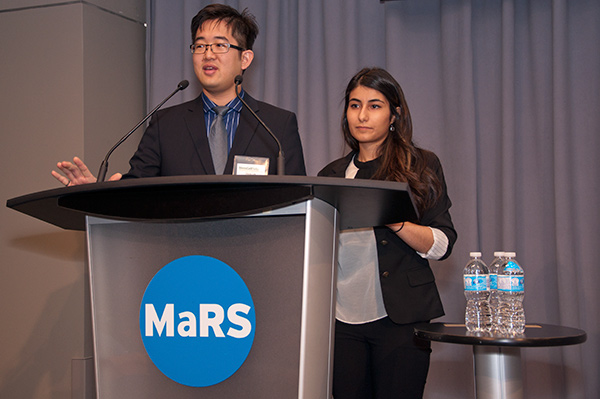
What does a discussion among approximately 140 high school students, volunteers, teachers and world-leading scientists on the subject of stem cells sound like?
Oddly personal, important and revolutionary.
“A student was saying that one of his friends died of leukemia and asked whether cord blood would have made a difference,” relates Biomedical Engineering PhD student David Lee, co-organizer of StemCellTalks, an invite-only conference for high school students held at the MaRS Auditorium last week.
Lee joined fellow Biomedical Engineering PhD student Nika Shakiba in organizing the annual event. A collaborative effort between the national volunteer science organization Let’s Talk Science and the Stem Cell Network, the one-day symposium highlights important areas in the science and ethics of stem cells to an audience of students hand-picked by their high school science teachers.
The brainchild of IBBME grads Angela McDonald and David Grant along with head organizer Paul Cassar, who ran the first event in 2010, StemCellTalks draws on deep roots at the University of Toronto.
“We have a rich tradition in stem cells here in Toronto,” explains Lee. “The discovery of blood stem cells happened right here.”
The one-day conference consisted of an introduction to stem cell science by Assistant Professor Penney Gilbert (IBBME), followed by lively debates by world-renowned leaders in stem cell science, including IBBME Professor Peter Zandstra and Dr.Armand Keating, Professor of Medicine, cross-appointed professor to IBBME, and Director of the Cell Therapy Program at the Princess Margaret Cancer Centre.
While Zandstra made the case for hematopoietic stem cell treatments for diseases such as Acute Lymphocytic Leukemia (ALL), fellow scientist Peter Tonge argued for the use of induced pluripotent stem cells (iPSC)– cells that can be programmed to become any type of cell in the body. Students then launched their own debates during breakout sessions and real-time Twitter feeds.



